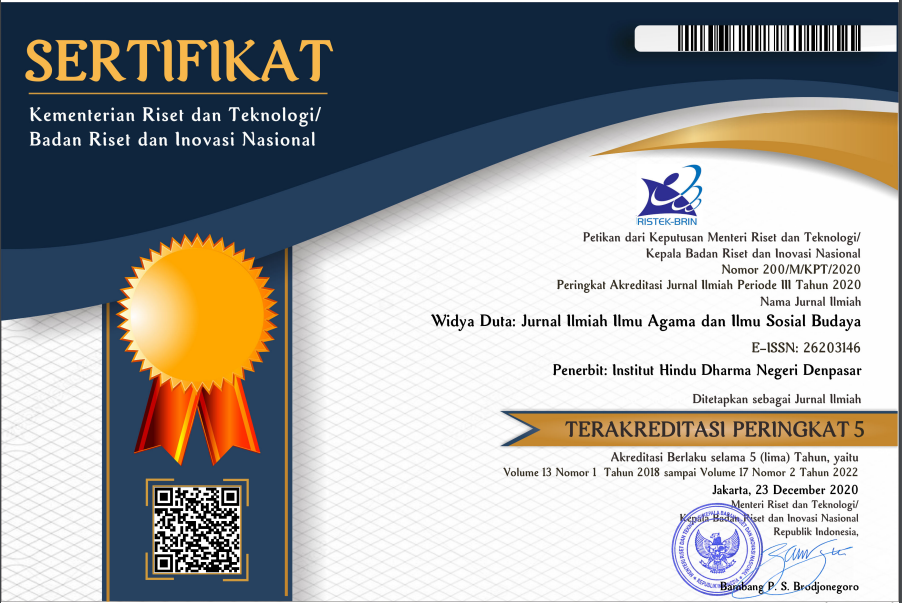"Peter Dews' Hermeneutical Study of Theodor Adorno: Cyberattack Crime and Its Relevance to the Stability of Religious Life in Indonesia"
DOI:
https://doi.org/10.25078/wd.v20i1.4322Keywords:
Theodor Adorno, Peter Dews, Artificial Intelligence, Technological Espionage, Religion and MoralityAbstract
The author puts the focus of this paper under the title “Peter Dews' Hermeneutic Study of Theodor Adorno: Cyberattack Crime and Its Relevance to the Establishment of Religious Life in Indonesia”. Cyber crime is rampant and its impact on the stability of religious life. The aim is that the author wants to open the reader's horizon to see Theodor Adorno's contribution as interpreted by Peter Dews regarding today's indiscriminate crimes and dare to think broadly regarding the establishment of religious life and universal public morality. In addition, the Church and the Nation dare to take positive lessons from the existence of Artificial Intelligence today, not to discriminate against other religions, nor to create dichotomies and demarcation lines between religions in Indonesia. The method used in this paper is a qualitative study with a phenomenological approach. The author finds that a lot of literature has discussed cybercrime, but in this paper the author looks further, namely the lens of Theodor Adorno's thoughts interpreted by Peter Dews regarding this crime. As a brief conclusion, the human subject that actively faces the world is a subject that is separated from nature as a whole and then consciously becomes a subject that is only calculative towards the world. Increasingly, an unforgiving society is objectively antagonistic in its adaptation to every situation. The root of this evil is human freedom trapped in itself and its social world by utilizing Artificial intelligence to attack religion.





